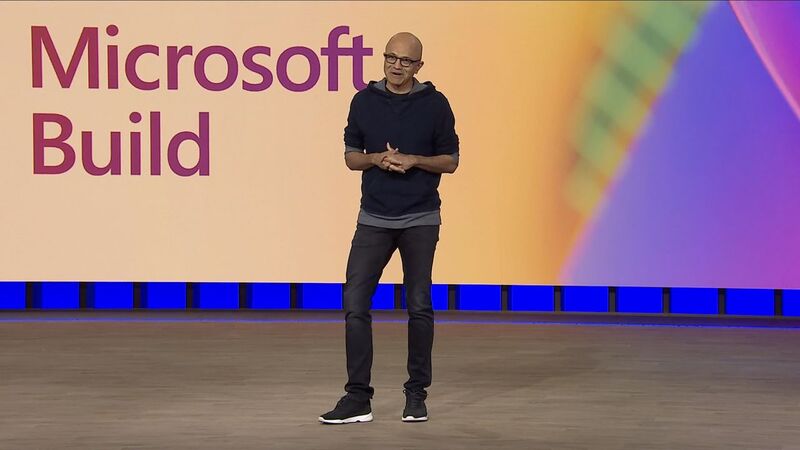Microsoft is changing the AI game.
At the same time, it is making a major competitive move against Amazon Web Services (AWS) and Google with a 1-2 punch.
Here are 7 announcements from Microsoft‘s Build 2023 event that will change the way AI will be used at work.
While all of these are innovative, #7 is the real game changer.
1. Personal Copilot aka ‘Copilots Everywhere’: The company is upgrading Windows 11 with a Copilot. This assistant will live within the taskbar and can summarize, rewrite, and explain text in any of the apps you’re using, as well as adjust your computer’s settings. AI Copilot might give Windows devices some leg up over Apple‘s MacBook series.
2. Business Copilot: This was expected. Microsoft is extending AI capabilities to Microsoft 365 apps with the addition of plugins to the 365 Copilot, which will also be integrated into the Edge browser.
3. Developer Copilot….yep more Copilots: GitHub is receiving an AI-powered chatbot integration which to assist developers with various actions, provide code recommendations, and explain errors.
4. ChatGPT is now Binging it: OpenAI’s ChatGPT chatbot will now use Bing as its default search engine. ChatGPT Plus users will see citations surfaced by Bing. This is good for ‘AI explainability’ and looking at references for quality checks.
5. Microsoft Fabric: a new all-in-one tool for managing and understanding data, and connecting different data-related tasks. It helps users to make the most of their data and find important information using AI. Users can talk to the tool to manage data, make code, build AI models, see results, and build own chat experiences.
6. Responsible AI with Azure AI Content Safety: a Responsible AI dashboard for text and image data, helping identify potential errors, harmful content, and fairness issues in models before deployment.
7. Azure AI Studio: a platform enabling developers to apply ChatGPT and GPT-4 to their data, and support vector embeddings. New capabilities include open source Foundation Models, providing a unified catalog to fine-tune, evaluate, and deploy a range of popular models within the Azure Machine Learning registry.
With Azure AI, Microsoft is making a 1-2 punch against AWS and Google:
A. Right now, it is the only hyperscaler that is offering OpenAI’s GPT 3.5 and 4.0 as part of its stack with enterprise grade registry, security and integrations.
B. In addition to OpenAI’s API, it now includes integration with Hugging Face which is the largest open source AI model repository on the planet. Before this announcement, AWS was offering this integration with its Bedrock offer. Microsoft’s new announcement brings its Azure stack at parity with AWS, taking care of sales objections from AI buyers.
AI wars are truly here.
Not just between Google and Microsoft. But also between major hyperscalers: especially AWS vs Azure.
What are your thoughts on Microsoft’s announcements and the AI hyperscaler war?
#generativeai #responsibleai

